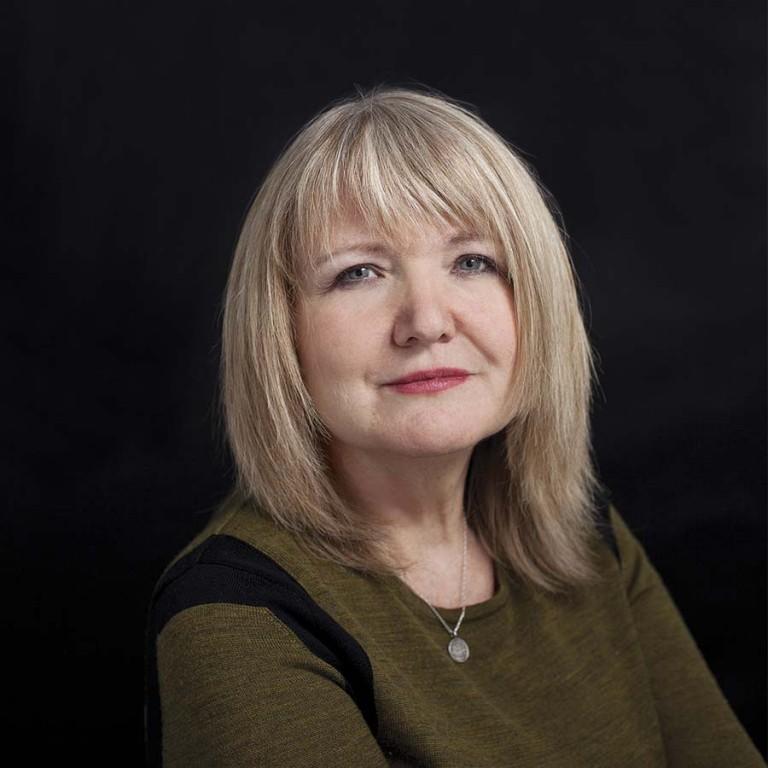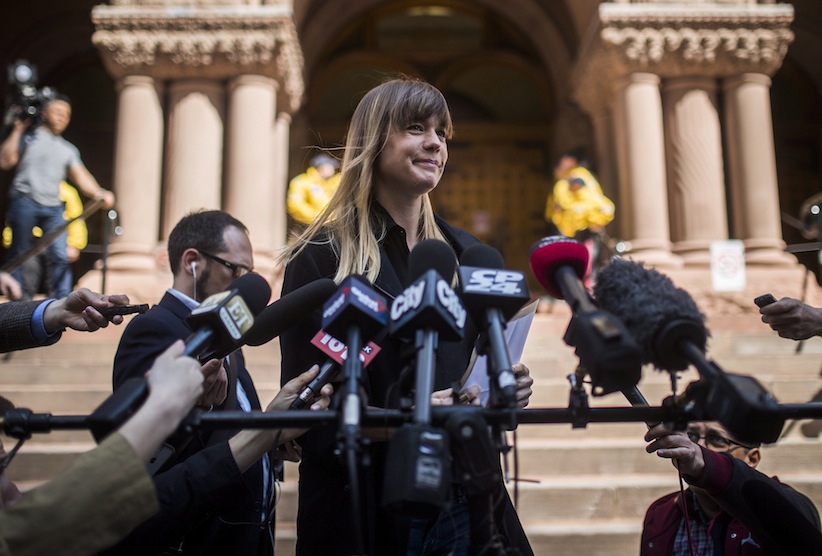The lessons we still have to learn, five months after the Ghomeshi trial
Kevin Donovan’s new book on the Jian Ghomeshi investigation and trial shows us how far we haven’t come on conversations around sexual assault

2013 – Anne Kingston
Share

Kevin Donovan’s new book, Secret Life: The Jian Ghomeshi Investigation, published on Tuesday, is destined to disappoint anyone seeking fresh salacious details about a once-beloved CBC Radio star. The veteran Toronto Star investigative reporter delivers a “tick-tock” as it’s known in the trade—an anatomy of the bombshell revelations that shocked a nation and provided a springboard for Ghomeshi’s 2016 criminal trials that ended in the former Q host acquitted on all charges. Donovan outlines the sensitivities, challenges and frictions involved in chasing and publishing the story and offers various re-enactments, including crisis-management meetings between lawyers, the CBC and Ghomeshi. Along the way he drops intriguing details, including phone calls between then Star publisher John Cruickshank, a regular on Q’s media panel, and Ghomeshi during the paper’s investigation. He also weighs in on why a case in which the judge found Ghomeshi “not guilty” while “not saying these events never happened” unspooled in such a spectacular way (police and Crown dropped the ball). But exploring broader context is not the book’s concern.
Yet Secret Life is rich in unintended consequence, landing as it is in the midst of widespread media cutbacks that make the long-term investigative journalism seen in the Star’s Ghomeshi investigation increasingly rare. The first story resulted from the paper’s May 2014 partnership with journalist Jesse Brown, who had interviewed several women who said Ghomeshi assaulted them. As an independent, Brown, host of media criticism podcast Canadaland, needed the institutional clout—and liability insurance—of a major outlet. Tellingly, Ghomeshi and the CBC used the descriptor “freelance journalist” to disparage Brown—even though the public broadcaster routinely employs freelancers on contract.
The 17 women and two men interviewed by the Star who “alleged they’d experienced sudden violence or sexually inappropriate behaviour at Ghomeshi’s hands,” as Donovan writes, underwent a watered-down version of the gauntlet that sexual assault complainants run in court: Why did you see him again? Why didn’t you report to police? In other words: Are you a credible victim? Answers cleaved to predictable patterns: The women feared they wouldn’t be believed. They blamed themselves for inviting the behaviour. They downplayed the experience; one woman reported staying at Ghomeshi’s house after saying she’d being choked to the point she feared she’d die.
Donovan’s own credibility was questioned in court during cross-examination of complainant Linda Redgrave by Marie Henein, Ghomeshi’s lawyer, who hammered Redgrave for, in media interviews about an alleged violent encounter with Ghomeshi in his car, not mentioning kissing Ghomeshi. “Kevin Donovan gets a lot wrong,” Redgrave told the court. The “kissing” detail was germane legally: without it, there’d be no context for the “sexual assault” charge. Donovan insists he got it right; he and Redgrave exchanged friendly emails after the story ran, he writes, with no mention of inaccuracies.

The book’s final word goes to complainant Kathryn Borel, a former CBC Radio producer who received an apology from Ghomeshi in court in return for one charge of sexual assault being dropped: “This is not the end of the conversation,” Borel says optimistically. “This is the beginning of the conversation.” Five months after the singular, sensational trial, however, we’re still casting for the context and language to conduct that conversation. The cone of silence surrounding judges’ education in sexual assault was highlighted in the ongoing judicial inquiry into federal Justice Robin Camp, who infamously asked a sexual assault complainant why she “didn’t keep [her] knees together” during a 2014 case.
MORE: Anne Kingston’s one-on-one interview with Kathryn Borel
Even the term “sexual assault” is fraught, as the exchange between Redgrave and Henein illustrates. As in “domestic violence,” the modifier softens underlying criminal behaviour. It presumes reflexive shame, seen in the publication ban automatically placed on sexual assault complainants, the way it is for minors. A need to protect those who’ve experienced intimate violation is real. But a publication ban imposed without individual consent isn’t the answer.
There’s also the fact it has been 33 years since “sexual assault” replaced “rape” in the Criminal Code, yet penetrative violation remains a perverse gold standard. “It didn’t feel like rape,” one woman told Donovan after reporting Ghomeshi attacked her in his hotel room. Lucy DeCoutere expressed a similar sentiment in court when asked why she didn’t report: “I thought you had to be broken and raped.” Borel too reported she didn’t see Ghomeshi’s behaviour as sexual assault.
Undue focus on the Ghomeshi case is like looking at a distorted mirror. While reporters lined up for the Ghomeshi trial at Toronto’s Old City Hall, another sexual assault case was taking place quietly upstairs. It ended in September, with York University Ph.D. student Mustafa Ururyar sentenced to 18 months in jail for sexually assaulting fellow student Mandi Gray. (The next day, Ururyar was granted bail to prepare for his appeal.) In his ruling, Ontario Court Justice Marvin Zuker spoke of the dangers of presuming sexual assault victims should act a certain way, while referring to “rape” throughout: “It doesn’t matter if the victim was drinking, out at night alone, sexually exploited, on a date with the perpetrator, or how the victim was dressed. No one asks to be raped.” Given that sexual assault by definition is non-consensual, that last sentence is tautological. The fact it needed to be said at all reveals just how badly a new conversation is needed.